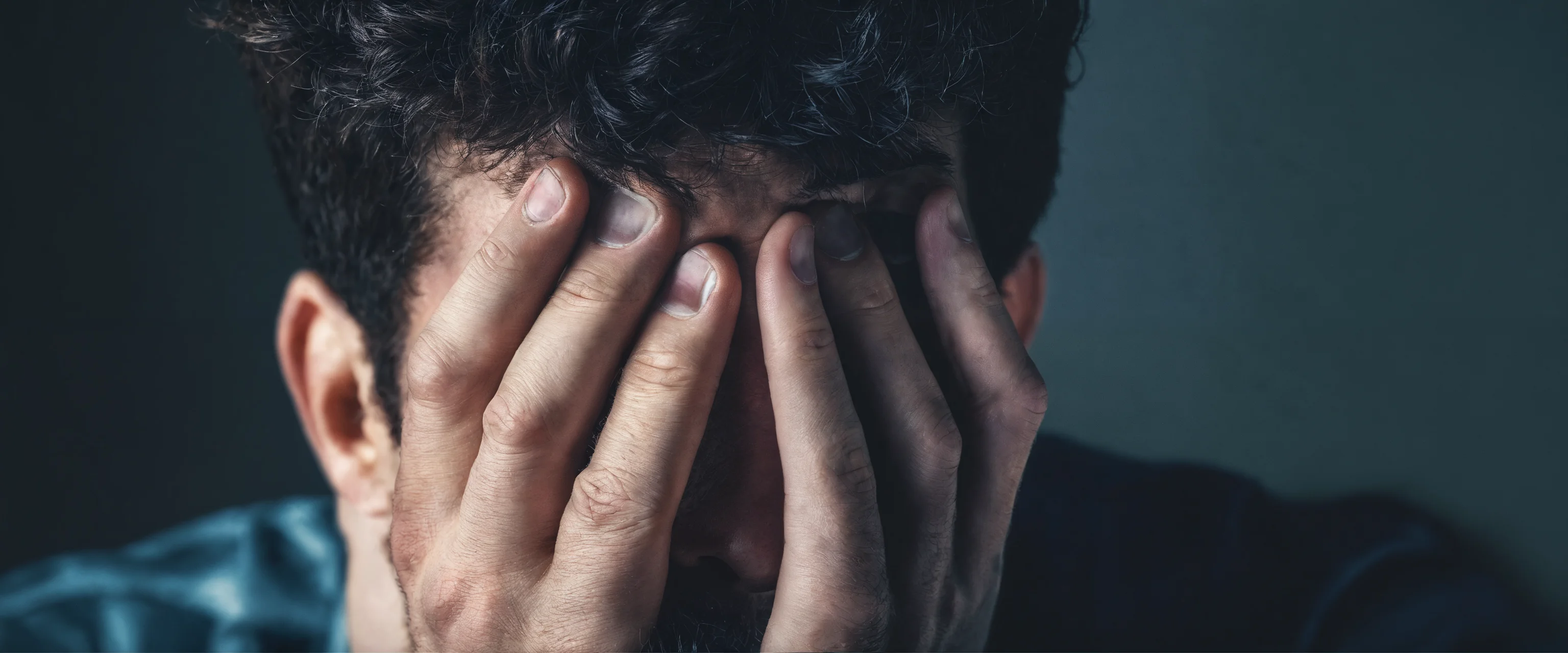Lately, a topic to which my consciousness periodically returns. I realized that shame, at some point in my life, firmly and quite conveniently settled around my neck, taking control of practically every aspect of my life.
It’s very difficult for me now to determine whether it settled in after my childhood trauma or if it happened earlier. But I think several factors contributed to its establishment: the shame of a seven-year-old girl because her parents divorced (maybe Dad was upset with me), the shame of a teenage girl “soiled” during an unauthorized “intrusion” (my childhood trauma), and the shame of an early-matured young woman who couldn’t do anything and preferred not to acknowledge her “boldly expressed” sexuality, trying to feel as “genderless” as possible, embarrassed by her voluptuous breasts and buttocks. Perhaps there was also shame for what my parents were ashamed of. Probably, it was Dad, perhaps…
What is shame? From Wikipedia: “Shame is a negatively colored emotion, the object of which is any action or quality of the subject. Shame is associated with a sense of social unacceptability of that which is shameful.”
What is shame? From Wikipedia: “Shame is a negatively colored emotion, the object of which is any action or quality of the subject. Shame is associated with a sense of social unacceptability of that which is shameful.”
And it’s also a wonderful management tool. Wonderful because it works on its own (when someone shames a person) and, like a parasite, takes over the consciousness where a solid “self” has not formed, continuing to loosen the ground for new “shameful” sowings and further, increasingly successful manipulations.
I am convinced that shame is an absolutely socially conditioned phenomenon because the face of morality (not moral character) completely depends on the standards recognized in society in a given locality and at a given time. (Relatively) recently born and not yet able to “learn” the norms of the society they live in, children are not ashamed of anything.
They can run naked in the streets, shout loudly, call each other any words (most often without attempting to offend), grab anyone for anything, and generally behave completely amorally, and they are forgiven for this, as beings not yet capable of grasping morality. However, I remember very well myself in childhood, and I disagreed with many of the moral positions instilled in me by my parents, considering them barbaric in relation to personal freedom.
Unfortunately, parents use shame as a means of teaching (education), as a very simple tool to handle. Yes, it is much more difficult to explain logically, argue, and negotiate, especially when the main parental argument is “because I said so.” If my parents had spent a little time and patience, even using their richer vocabulary, explained logically to me why something should not be done or even if it’s not prohibited, why it shouldn’t be done: what the consequences may be (in the form of “probably”), I would have been much more loyal to many of their opinions and rules. This would have deprived me of the rigidity with which children are bound by imposed boundaries and restrictions, very often greatly harming their creative development.
Luckily, I have a very flexible psyche, and where I was cornered, I found a small window and created new dimensions for myself, where I could freely fly as much as my soul desired. Unfortunately, not all children are as flexible in this sense, and sometimes they are frightened by the “terrible” consequences of actions and aspects of their own existence for which they were (or can be) ashamed (sometimes completely undeservedly!), so in such conditions, the only way out they find is in the world of their own fantasies, or even worse – alternative realities, which can begin to replace the ordinary reality, in other words, cause schizophrenic deviations.
I remember that after the episode that caused my childhood trauma (which, I think, was a very strong catalyst for the development of shame in me), for 4-5 years, I reached such an internal state, literally constantly not experiencing, but living through shame, that for quite a long time (maybe a year and a half, maybe two) I perceived the surrounding reality as unworthy of my full presence. But at the same time, I managed to study quite well (even on an increased scholarship) and enjoy this reality where it wasn’t difficult. Nevertheless, especially in the winter, I seemed to fall into hibernation, and literally all the time that wasn’t occupied by study, I spent lying in bed, turning off the light, and fantasizing, creating for myself a different, new world, where I was different, someone I was never ashamed of, someone that both I and everyone around accepted, who lived in a fairy-tale place and communicated with characters I invented.
Fortunately, the flexibility of my psyche allowed it to only “slightly bend” to then safely return to a more familiar state and adult life. Did the shame leave at that moment? No, I think it never left. When I started to see myself as a successful person (in academics and career), it completely seized the area of my personal life and self-awareness as an individual and woman, and there, having settled down more comfortably, it effectively managed these areas of my life.
How many books, how many trainings, how much psychoanalysis, how many attempts to realize, accept, and love myself, how many attempts to understand what’s wrong – I can’t enumerate. It seems to me that I already know every psychoanalytic system, tried every technique, even physical ones (bringing my figure to a state where I wholeheartedly admired it at around 22-23 years old didn’t give results) – nothing helped me accept myself, relax, stop “eating myself up.”
I think I took the first step in realizing what was happening to me at one of the Landmark seminars, when I stood up and said in front of the whole hall: “I realized that something is wrong with me: I thought something was wrong with me.” And it’s very simple. I am not OK – this is the first shock a child experiences. This is the first trigger of shame. This is the first tragedy in the life of any child. The reasons for the tragedy can be different: parents divorced, someone hit, mom shouted. As long as it is perceived harmoniously, the child remains a little angel. As soon as it affects their personality – the first time is always “Something’s wrong with me!” Then either parents help, explaining and soothing, or they let the leech of shame attach itself. Sometimes parents don’t participate in this process at all, then the situation can easily unfold in such a way that the child is offered an alternative in which their self-image loses. And shame is born.
Example: a child’s father drinks. He himself is not able to realize that it’s bad if it doesn’t directly harm him. The child’s psyche is very receptive. But it’s enough for someone to laugh at the child in kindergarten, calling his father a “red-nosed drunk” – laughed in a way that touches the child – that’s it. “Something’s wrong with me.” The child’s psyche is egocentric, he perceives everything through himself. Red-nosed dad is a part of the child himself. Shame.
This is just a small example. Imagine the impact when the reason for shame lies within the child…
Earlier, I noted that shame is always subjectively conditioned. In other words, in different societies, at different times, different phenomena can be shamed, sometimes seemingly opposite ones. (I say “seemingly” because it’s also difficult to define, for example, whether going somewhere naked or clothed are opposites.)
Is shame necessary? I wondered. On one hand, how else can a child (or person) determine if they fit into the social norms accepted in the society they live in? On one hand, yes. But on the other… As Prot said in the film “K-PAX”: “Everybody in the universe knows right from wrong.” I agree. I believe that every child is capable of determining what is true and what is false, what is right and what is wrong, by simply asking their wise inner self. However, even without delving into this realm, an attempt to shame someone merely teaches and reinforces a person’s knowledge of how to reflect. A certain amount of healthy reflection can be present in a person, but wouldn’t it be better to teach them to rely on common sense and a system of cause and effect?
After re-reading a post (sorry, it’s a private post) I recently stumbled upon in my own journal, I suddenly saw what I hadn’t seen (or registered) before. Shame. Analyzing that situation and much in my life again, I realized that Shame literally sits on my head and joyfully swings its legs.
The last time I had a shame attack was this Saturday. The details are too delicate to make public, but I will say that when I analyzed the cause of the shame the next day, I realized that I hadn’t done anything shameful. Nothing! Of course, this doesn’t mean that I didn’t do anything that contradicted or somewhat didn’t correspond to common sense, but it wasn’t shameful. It wasn’t useful for me, but not shameful! However, before realizing this, I went through such suffering caused by shame that I am now in slight shock: I have had countless such experiences in varying degrees, forms, and reasons, and never did I realize that all of this was an illusion, the work of shame controlling my life, a slavery I voluntarily accepted.
And then I decided, enough. I refuse to continue my life under its guidance. I don’t care now what caused it to live in my consciousness for so long, but from this moment, I begin the process of deportation. In this regard, I now practice completely brazen shameless behavior.
Does this mean that I stopped observing social norms? Of course not. But every time I start to scold or blame myself (I’m not talking about obvious horrors), I try to track, immediately stop, and then take pride in the same thing. And, interestingly, I noticed that everything I scolded myself for turned out to be such “non-horrible” phenomena that it just becomes funny. For example, dishes left in the sink. Or an unwashed bathtub. Or a car not put in the garage. Or a sweater with a hole that needs mending and has been lying around for six months. And for such things, I scolded myself and felt shame and inadequacy! Of course, there are more serious things, and some may even consider them valid reasons for “concern,” like the size of my waist… But on the other hand, for the sake of someone else’s notions of beauty and standards in this area (even if it’s the whole world!), SHOULD I BE ASHAMED OF MY OWN BODY?
To hell with that! I immediately stick out my tender pink tummy, pat it, and say how wonderful it is. No one’s going to get me down.
Shame is unnecessary. It does not help in the process of evaluating oneself and one’s actions against social norms – common sense helps with that. Shame kills the life in a person. Shame parasitizes. Shame devours.
Good luck removing this tumor from your consciousness. Forever.
PS: I do not claim this essay to be psychologically sound. All my thoughts and arguments are based solely on my personal experience and cannot be taken as absolute truth. But I hope these thoughts help someone. Please link to my blog if you decide to reprint this article.





No responses yet